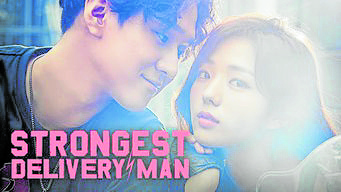I encountered this Korean series in Netflix after I was done with “Start-Up,” another Korean series. I got curious since the actor who played the character of Mr. Han, who was a mentor in “Start-Up,” also played a major role in “Strongest Delivery Man.”
One of the new things I discovered is that food deliveries in South Korea involve using the restaurants’ bowls and dishes, instead of “styropor” packaging.
The system entails reverse logistics—with the bowls and dishes gathered after use, similar to how soft drink companies recall used bottles, a more environmental friendly practice.
Also, aside from homes and offices, delivery can be done anywhere, including parks.
Here are marketing lessons about “Strongest Delivery Man” that I would like to share.
I will not cite specific examples so as not to be a series spoiler. Just try to spot the lessons when you watch the series.
Market-driving strategy:
Delivery service is a benefit that helps reach the unserved market, beyond the usual existing dine-in customers.
Never limit delivery to one industry, such as food. Delivery can include laundry, flowers or just about anything to tap the company’s untapped markets.
Marketing Innovation:
A business can use cooperative-type structure where delivery people are also investors.
Beyond just delivery, provide “extra” good service. If your brand purpose is “Be Nice,” you can help fix a jammed photocopier, help a staff member make a decision, even provide a short entertainment number for bulk orders when needed.
Business model teaches us that margin is one way to make a profit, big volume turnover is another way for low margin items.
Go beyond being transactional, be a solution provider, especially to clients in need of new ideas. Help them source cheaper and valuable raw materials, negotiate with landlords, introduce new financiers, provide marketing ideas.
Growth marketing:
Be relevant with your offer by ensuring customers will shift their preference toward you. Instead of paying own employees, a variable cost based delivery outsourcing offer that can save company’s fixed based salaries and insurance costs while providing speed, can be a viable alternative.
Positioning need not be limited to functional appeal like “home cooked meal” but authentic emotional appeal like “served by people with sincere kindness and affection treating you like family.”
Never rely on a single big client for your survival.
Using a big loan to finance a low margin business is very risky if sales do not come in as expected.
Defense marketing:
Marketing planning is important. But use premortem to do business continuity planning to anticipate and prepare for exceptional scenarios.
Be analytical as well as critical. Know who has the motive to cause your downfall, and how they can make it happen.
Coexist with competition. Never harm them unethically. They have employees to support as well. Corporate clients will not want to be associated with an unethical competitor.
Keep trying. Trials are tests of your endurance and can build character.
5 skills of master strategists:
Five skills are needed from different team members to complete a strategy—sensemaking (what’s happening now), discovering (finding new truths), innovating (a new way to do business), influencing (buy-in of people involved) and executing (getting things done)
In bad times, remember the good times and your struggling days that you have overcome. Don’t be afraid of failure. Learn from your mistakes. Keep evaluating and redirecting until you get it right. —CONTRIBUTED
Josiah Go will run the 1st Advanced Marketing Seminar via Zoom in the morning of Feb. 9, 11, 18, 20 and 23. Email info@mansmith.net for details.
